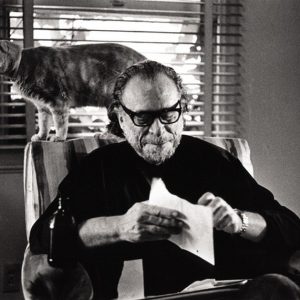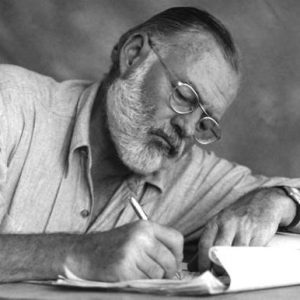23.01.19

“No one ever found any answers at the bottom of a bottle. Not the point, of course. The point of reaching the bottom of the bottle is generally to forget the questions.” C.J. Tudor, The Chalk Man
Questions
Let’s start in the deep end with a survey.
Have you ever used alcohol for the following?
*To forget
*To create
*To relax
*To have fun
*To fit in
*To have sex
*To keep up
*To let go
*To cry
*To stop crying
*To be a man
*To feel attractive
*To stop the boredom
*To dance in public
*To make the drugs work quicker
*To pass the time
*To reward yourself
*To gain courage
*To make long distant flights go faster
*To negotiate theatre foyers
*To get through Christmas, weddings, christenings, funerals and Australia Day
*To feel good
*To escape sadness
*To dodge shame
*To avoid pain
*To sleep
*To get out of bed in the morning
Any of these sound familiar? If so, come see Dead Cat Bounce because in many respects writing a play about alcohol is not really writing a play about alcohol: it is writing a play about the complex, and in some cases, painful relationships we have with ourselves. This play has a lot to say about battling demons. If you have any, bring them along to see it. I hope it will help.
Writing and spiders
As I sat down to write this blog, a large and hairy spider appeared above me. As if writing a blog about your new play isn’t difficult enough!
I am the kind of person who worries about the consequence of killing a spider. Maybe that’s why I write plays. You can make your characters kill, give birth, love, hate, maim, betray, liberate and (in this country) you can do it all without getting a criminal record. Unlike the actors, you can usually do it all without being recognised in the foyer. The last play I had on the Griffin stage was The Dapto Chaser, a story set in the world of dog racing, and when I was introduced to someone in the foyer as the writer, their response was gold – “No! I imagined you to be a fat old guy with a beard and tattoos!” I was perversely flattered because writing is ultimately a game of shape shifting. You have to use your empathy and imagination to walk in your characters shoes. It’s a tricky business. You have to fall in love with your characters’ fallibility, without letting them off the hook of consequence.
Killing a spider is less of a concern than writing a play: no one sees you kill a spider. The plays I love are about things we pretend not to see, things we pretend don’t happen. It is my ambition to write plays that contain tipping points in which the hidden, and often shameful rises to the surface. The kind of plays that make you feel less alone.
What makes my play is a love story
Dead Cat Bounce is about addiction and the effect it has one’s ability to give and receive love. All the characters in this play are addicted. The conflict lies in feeding their addiction, which results in asking for things that are beyond the pail, things that are not fair to ask of anyone, let alone those you purport to love. I was particularly interested in the ripple effect of addiction and the damage it does to intimate relationships.
“It used to be that each time you fell in love, the effort of loving released in you the energy to hold everything together a little longer. Then, after several months or years, when things began to crack apart again, you would fall in love with someone else. New energy would be released, and for a time you and your world would be safe once more.
By now, however, you have exhausted that. There seems to be no energy left – if you had discovered alcohol earlier it might have saved a few broken hearts. For you, alcohol is not the problem – it’s the solution: dissolving all the separate parts into one. A universal solvent. An ocean.” Ron Butlin, The Sound of My Voice
In one form or another, all the characters in Dead Cat Bounce are facing unrequited love. A challenge that brings out the best and worst of human behavior. Unfolding my characters’ survival techniques in the face of heartbreak was a challenge, and I relished it. Losing in love can create unseen heroic acts of restraint, sacrifice, and grace. The reserves people find in the face of heartbreak is of great interest to me as a playwright and a human being, who, like everyone, harbors struggles.
Every character in Dead Cat Bounce recklessly throws their heart at the wall at some stage of the story. They are all guilty, all fallible and at the same time all worthy of love, which they are doggedly hunting.
My hope is that if you have love in your life, you will leave the theatre holding the hand of your dear one just that little bit tighter after seeing this play.
Metaphor and guiding lights
I think writing is an act of exploring until you discover a country. Then you have to build, and before you know it you have a population, a culture, a history and a period of war. If there is no war, there is no play.
I like to give my plays the trimmings of nationhood. Leaders, ambassadors, flags, national sports, national dishes. They live in the form of songs, books, post-it notes and google pages.
In the case of Dead Cat Bounce, the national anthem is ‘These Days’ by Powderfinger.
It’s coming round again
Slowly creeping hand
Of time and its command
Soon enough it comes
And settles in its place
Its shadow in my face
Puts pressure in my day
This life well it’s slipping right through my hands
These days turned out nothing like I had planned…
This song speaks to the journey of the characters, and their pursuit of love. They get knocked off course and things really do turn out nothing like they had planned. All the characters in this play carry shame, and their admission of that shame is crucial to their forward movement.
The patron saint of the play is Charles Bukowski.

“I was drawn to all the wrong things: I liked to drink, I was lazy, I didn’t have a god, politics, ideas, ideals. I was settled into nothingness; a kind of non-being, and I accepted it. I didn’t make for an interesting person. I didn’t want to be interesting, it was too hard. What I really wanted was only a soft, hazy space to live in, and to be left alone. On the other hand, when I got drunk I screamed, went crazy, got all out of hand. One kind of behavior didn’t fit the other. I didn’t care.” Charles Bukowski, Women
Charles Bukowski would hate to have been called a saint, but I like my saints fallible, dirty and troubled. I like to think if the main character of my play met Charles Bukowski in a bar he would recognise the contradiction between the motivation to drink and the results of drinking.
The job of lighthouse keeper went to Ernest Hemingway, because he understands suffering and redemption in equal and beautiful measure.

“The world breaks everyone, and afterward, some are strong at the broken places.” Ernest Hemingway.
The portfolio of Minister for risk, courage and boldness went to Caryl Churchill, because she is Caryl Churchill.

And last but not least, the super hero, Charlie Kaufman. His super power is vulnerability. I watch the below link often, it is good for my mental health.
Writing is a solitary business: it is good to employ outside forces.
Intention
I had to write two plays to get to the real territory of Dead Cat Bounce. I went on a few safaris before I could plant my flag in a place that contained real stakes and conflicts. The subject matter of this play has high stakes: for some, drinking is a matter of life and death.
“Although alcohol-induced mortality rates are declining, 2017 still recorded the largest number of deaths in this period, with 1,366 persons dying as a direct result of alcohol, indicating that alcohol consumption still causes significant burden within the Australian health system. Alcohol related fatalities extend beyond those deaths which are directly attributable to alcohol. In 2017 there were 4,186 deaths where alcohol was mentioned as being a contributing factor to mortality.” Australian Bureau of Statistics
I wish I was a faster writer, but I don’t believe we can choose what kind of writer we are.I can’t cherry pick my strengths and weaknesses, but I can choose what I want to say and what I think is important. In many respects this is the most defining quality of a writer. Intention.
“People with family histories of alcoholism tend to have lower levels of endorphins- the endogenous morphine that is responsible for many of our pleasure responses- than do people genetically disinclined to alcoholism. Alcohol will slightly raise the endorphin level of people without the genetic basis for alcoholism; it will dramatically raise the endorphin level of people with that genetic basis. Specialists spend a lot of time formulating exotic hypotheses to account for substance abuse. Most experts point out, strong motivations for avoiding drugs; but there are also strong motivations for taking them. People who claim not to understand why anyone would get addicted to drugs are usually people who haven’t tried them or who are genetically fairly invulnerable to them.” Andrew Solomon, The Noonday Demon: An Atlas of Depression
I think there is always a reason for addiction specific to the vulnerabilities of the individual. I do not subscribe to idiotic reductionist slogan such as – ‘The war on drugs’. In terms of drugs, alcohol holds a special place because it is legal and generally socially accepted. Sometimes this gives us an out when it comes to squaring up to alcoholism as a serious, pervasive and damaging addiction.
“I’m sick of the ignorance that lack of funding has generated, of the fathers who approach me at dinner parties with their four-year-old girls clasped to their pant legs and say, “Yeah, but studies say kids can buy drugs more easily than they can buy alcohol.” To which I always respond, “I guess that means you keep heroin in your liquor cabinet?” Koren Zailckas, Smashed: Story of a Drunken Girlhood
Gratitude
A big shout-out to the brave and generous people from Al-anon who shared their stories with me. The heart of this play belongs to them.
For those of you that don’t know, Al-anon is a support group whose purpose is “to help families and friends of alcoholics recover from the effects of living with someone whose drinking is a problem.”
I also owe thanks to AA, for letting me observe meetings.
I’d also like to thank my liver for forgiving me. Like many Australians, I love drinking, sometimes more than I should.
Research
I read a lot of books and spoke to a lot of people in order to write this play. My technique is to research the bejesus out my subject matter, then walk away from that research and hope it is locked into the fabric of my subconscious, always there to hold me to account and help me create a work that speaks to its subject matter with integrity.
When it comes to playwriting, research is a mechanism for integrity as opposed to truth. You want facts, stay home and read a newspaper. There is a truckload of bullshit flying about when it comes to the doctrine of ‘write what you know’. J.R.R. Tolkien didn’t know what it was like to be a bloody wizard or a hobbit; he used his imagination to find out. Plays are fiction, in their best form they are love letters to the world because they help us know ourselves better.
The world is built for finding things out, and it is the job of the playwright to do so with rigour. When you find out, you have to use your empathy, love, and imagination to turn your knowledge into a story. The world would be a small and boring place if we all stayed in the confines of what we know.
One of the milestones in researching this play was spending a few days hanging out with a friend of mine who is a recovering alcoholic. He shared many stories and insights. AA requires people to wrestle with the truth, in many, it imbues a form of honesty that is generous and brave. It was a privilege to listen to my friend; his openness made me reflect on how focused we are on concealing our truths.
The missing piece and the solution
Towards the end of spending time with my friend, I got crippled by the tyranny of the ‘write what you know’ edict. I doubted my ability to write this story. My friend gave me some sage advice in the form of a question: “What are your problems?”
I am eternally grateful to my friend for his simple question. My characters were not going to throw their heart against the wall until I did. So I turned to step four of the AA’s twelve steps: “4. Made a searching and fearless moral inventory of ourselves.”
https://jasonwahler.com/breaking-down-step-four-of-aa-alcoholics-anonymous/
I think it is a useful step for everyone, regardless of your drinking status.
Process
Let’s admit it, sometimes it can be a bit boring when writers talk about their process. So I am not going to go into it. The constant rule is to keep turning up, even when it’s hard. In light of this, I leave you with a picture of my journeyman. Every time I sit down to write, without fail Pikelet Carol Brown sits patiently and lovingly at my feet.

Thank you for reading.
I hope to see you at the show.
Cheers,
Mary Rachel Brown
Playwright, a proud member of The Australian Writers Guild and a supporter of Women in Theatre, Television and Screen (WITTS).
PS Just for the record, the spider is still in the same spot, I don’t subscribe to killing spiders. I think they are a sign of good luck.

